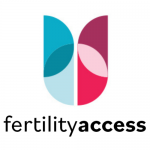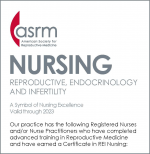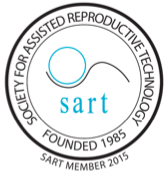What is polycystic ovary syndrome (PCOS)?
Polycystic ovary syndrome (PCOS) affects more than three million women of reproductive age every year. PCOS is characterized by enlarged ovaries that contain small collections of fluid-filled follicles or cysts in each ovary. Women with PCOS are more likely to have fertility difficulties, miscarriages, gestational diabetes, pregnancy-induced high blood pressure and premature delivery. PCOS is often detected during an ultrasound exam, but its exact cause is still unknown.
Signs and symptoms associated with PCOS
PCOS can exhibit many different signs. Some of the most common symptoms include:
- Irregular or absent menstrual periods
- Heavy vaginal bleeding
- Oily skin and/or acne
- Excessive hair growth on the face, chest, abdomen, or thighs
- Hair thinning on the crown of the head
- Cardiovascular issues, like high cholesterol
- Acanthosis nigricans (darkening and thickening of the skin)
- Multiple tiny ovarian cysts or tiny follicle cysts on the ovaries
- Excess androgen (male) hormones
- Type 2 diabetes
- Obesity
PCOS and fertility
The ovaries, where a woman’s eggs are produced, have tiny fluid-filled sacs called follicles. As the egg grows, the follicle builds up fluid. Once the egg matures, ovulation can begin. The follicle breaks open, and the egg is released to travel to the fallopian tube where fertilization takes place. The fertilized egg then travels to the uterus (womb) for implantation.
In women with PCOS, the ovary fails to produce all of the hormones needed for an egg to fully mature. Though the follicles may begin to grow and build up fluid, ovulation does not occur. Instead, some follicles remain as cysts and the hormone progesterone is not produced. Without progesterone, a woman’s menstrual cycle is irregular or absent. In addition, the ovaries make male hormones, which can also inhibit ovulation.
Treating infertility caused by PCOS
There is no cure for PCOS, but there are fertility treatments available to increase your chances of pregnancy. Treatment options include:
Lifestyle changes
If you are overweight, losing as little as five percent of your body weight can improve your chances of conceiving.
Medications
Lack of ovulation is usually the reason for fertility problems in women with PCOS. There are several medications that can stimulate ovulation to help women with PCOS achieve pregnancy. Keep in mind that some fertility medications can increase the likelihood of multiple births. Some fertility medications used for treating PCOS include:
- Clomiphene (Clomid, Serophene) is an oral anti-estrogen medication that is taken during the first part of your menstrual cycle.
- Femara (Letrozole) is another oral medication that can be taken in lieu of clomiphene.
- Metformin may be indicated for women with insulin resistance.
- When clomiphene and metformin aren’t successful, follicle-stimulating and luteinizing hormone medications known as gonadotropins may help.
If you suffer from PCOS and are having difficulty becoming pregnant, call the experienced reproductive specialists at Center for Reproductive Medicine today at 612-355-8596 to schedule an appointment.





